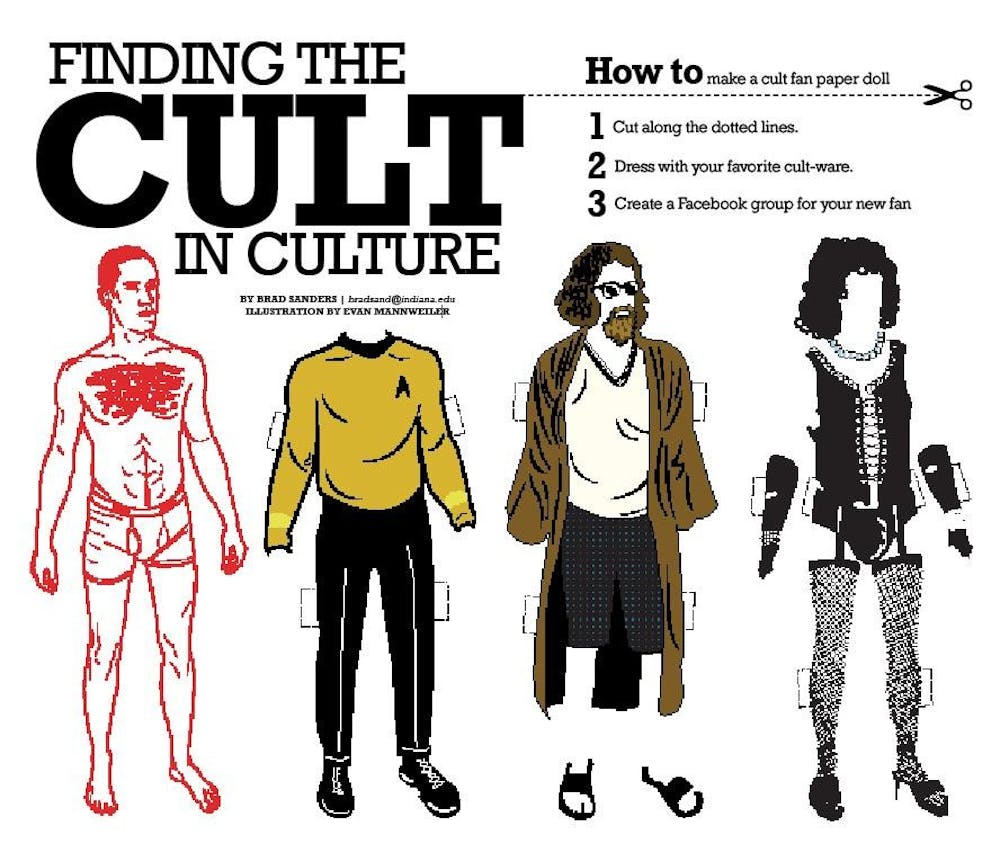When the Coen brothers’ comedy “The Big Lebowski” premiered in March 1998, it was a financial failure. It made just over $5.5 million in its opening weekend, landing it in sixth place at the box office.
Four years later, two friends from Louisville, Ky., rented out a local bowling alley to hold a celebration of the film that they called Lebowski Fest, and, to their surprise, people flocked from all over the country to attend.
Today, there are successful Lebowski Fests held in Louisville, New York, Las Vegas, Los Angeles, Austin, Seattle, Chicago, San Francisco, Portland and Boston every year. Something has happened since that disappointing first weekend in 1998, and that something is what makes a cult movie.
Ed Comentale, a professor in the English department, studies cult films and recently co-edited “The Year’s Work in Lebowski Studies,” a collection of essays on The Dude’s cult following. He believes a cult movie is mostly given its status by the fans.
“Cult films are defined mostly by the ways that people use them — rituals of socialization and sociability: viewing habits, costumes, quotations, parties, drinking games, mash-ups,” he said. “Cult films are always in post-production, and their appeal lies in the creative uses to which they are put over time.”
Of course, not just any movie can become a cult classic. There’s a certain rejection of the Hollywood status quo that cult movies embody.
“The best, most satisfying cult films tend to establish themselves against the system that produced them,” Comentale said. “Our most endearing cult films are films that never should have been made. They seem to kick against the big business of Hollywood and the culture industry at large.”
It’s tempting to crown “The Big Lebowski” as king of all cult films. After all, there’s a festival in 10 cities every year. But there’s another movie that is celebrated in a just as intense manner in hundreds of cities across the country, including Bloomington. For this flick’s fans, the word “Rocky” has nothing to do with boxing or Sylvester Stallone.
The Buskirk-Chumley Theater started screening “The Rocky Horror Picture Show” on Halloween in 2005 in concert with the Bloomington-based Cardinal Stage Company, and the response has been overwhelmingly positive.
Katie Becker, the general manager at Cardinal Stage Company, has been involved in the production since it debuted.
“The folks who come to ‘Rocky’ are a really cool mix,” she said. “They’re the people who have seen ‘Rocky’ dozens of times and keep going back. They get dressed up like the characters, know all of the audience participation stuff and really go all out.
But the thing that’s really great about ‘Rocky’ for me is that there are also tons of ‘Rocky virgins’ who are coming to the show for the first time.”
As with “Lebowski,” there’s a mysticism about the accessibility of “Rocky Horror.” It might be jarring to casual moviegoers, but the indoctrination of new fans is encouraged by longtime “Rocky” lovers.
“The whole event is set up with a pre-show ‘de-virginization’ ceremony to get everyone in the crowd having fun and to teach the newbies some of the basics on what to do,” Becker said.
Movies aren’t the only things that can attract cult followings. Certain genres of music, like jazz and electronica, have rites and rituals. Perhaps the most cult-oriented genre of all is black metal; in fact, “cult” — sometimes spelled “kvlt” — is an adjective readily used to describe black metal bands and albums.
Mike Lang, a senior majoring in communication and culture who does scholarly work on extreme metal, sees the very definition of black metal as enough to make it “cult.”
“By design, black metal seeks to abandon its human and communal attachments, becoming elitist as members try and abide by its individualist code,” he said.
And just as with cult movies, it can be difficult to “get” cult music as a novice.
“The first time I heard black metal, I hated it,” Lang said. “It took me a number of years of constant exposure to various kinds of metal to fully appreciate it. Now I’m really attracted to black metal’s ability to create atmosphere and mood.”
The nature of anything that attracts a cult following is that once you’re in, it’s deeply rewarding. The first viewing of “The Big Lebowski,” “The Rocky Horror Picture Show” or “Army of Darkness,” won’t reveal cinematic greatness, and the first listen to Emperor’s “In the Nightside Eclipse” or John Coltrane’s “Interstellar Space” won’t sound like anything you’d want to listen to twice.
But you do, and once you do, you catch things you didn’t catch the first time, and that inspires more viewings and listens, and you continue to catch things that you didn’t catch before. Before long, you’re a member of the cult, and there’s no turning back.
Fans give little-known gems and genres their place in history

Get stories like this in your inbox
Subscribe





